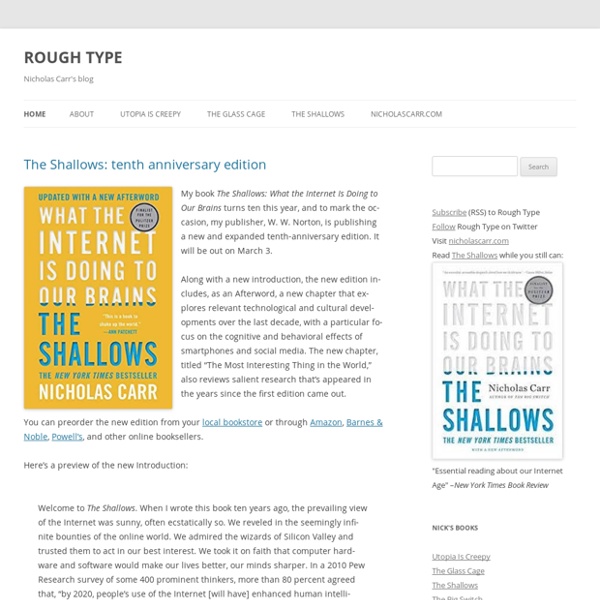



Home FutureEverything | Award winning Festival & Innovation Lab Brainy Gamer The term 'genre' eventually becomes pejorative because you're referring to something that's so codified and ritualized it ceases to have the power and meaning it had when it first started. --Christopher Nolan Here's what we think we know about genre: it limits creativity. It binds artists to tried-and-true formulas and encourages derivative work. Genres are agents of ideological closure; they limit the meaning-potential of a given text. Artists aren't the only victims. Some artists try hard to avoid genre influences on their work. So it's worth asking: what artist worth his salt would self-impose such constraints? My name is John Ford, and I make Westerns. Lots of gifted artists have been drawn to genre because of its formulaic nature, and many of our greatest artistic treasures are clear expressions of genre inspiration. Artists crave freedom, but most quickly learn that limits, even apparently harsh ones, can be more friend than enemy. Film Noir? That's where video games come in.
EclectEcon Medialab-Prado Madrid What Games Have to Teach Us About Teaching and Learning: Game Design as a Model for Course and Curricular Development | Currents in Electronic Literacy Kimon Keramidas If you are at all interested in the idea of games as a part of education and learning then you have probably come across James Gee’s What Do Video Games Have to Teach Us About Learning and Literacy. Gee’s book is an important text because he is able to quantify the way people learn and apply what they learn in video games. He makes a convincing argument that video games have the capacity to help us reexamine how we learn, but he doesn’t tell us how to make games that students will want to play and will also learn from. The question for educators, then, is how exactly to take advantage of the benefits Gee has made apparent in this book. So, where does that leave the possibilities for video games in the classroom, and in what ways can we take advantage of Gee’s findings? Games and Learning Environments: Definitions A few things stand out when considering the relationship of games and teaching. Juul derives this definition from the following six features: 1) Rules. Rules Play
theCHIVE - Probably the Best Site in the World – Keep Calm and Chive On Magazine, book publishers and media technologists | Mute Marginal Revolution — Small steps toward a much better world.